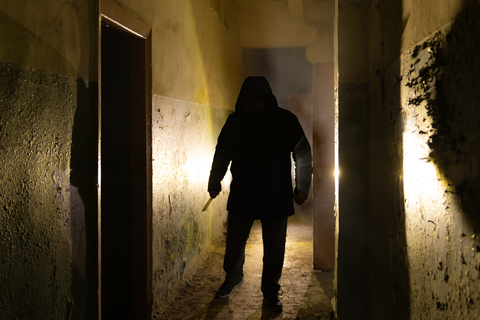“On a related subject, Signore Pazzi, I must confess to you: I’m giving serious thought to eating your wife.”
-Hannibal Lecter
There’s near-universal consensus that America is in the midst of a mental health crisis. Following the isolation and uncertainties of the pandemic, forty percent of parents reported being worried that their child is struggling with anxiety or depression, and nearly one out of every three teenagers said that the state of their mental health was poor. The demand for mental heath care has never been more urgent.
In real life, therapists are supposed to be the good guys, but in thrillers, we seem to be up to pretty shady stuff.
A few examples of recent thriller plots involving psychology:
A young woman agrees to be a test subject in a psychological study about ethics and morality, but as the study moves into to the real world, the line between what is real and what is being examined blurs.
A psychologist is revealed to have a secret room that contains audio transcripts from every patient they’ve ever interviewed. As the protagonist listens to the tapes, a terrifying web of lies is revealed.
A new patient begins treatment and events soon spiral out of control for both them and their therapist.
What’s with all the mistrust? I’ve been curious as a psychologist and as a writer about ways therapy and psychology have been portrayed in fiction, and a few possibilities occurred to me about how therapist characters so frequently end up as villains:
1. Therapy is sometimes uncomfortable.
People come to therapy to address some of the most difficult parts of their lives. It’s an incredibly vulnerable position, and no one likes to feel judged.
When devising a plot, who better than to see get their comeuppance than a smug know-it-all? I’ve been in practice for twenty years and am still surprised by how we all project our fears onto a quiet listener. The same therapist might be seen as brilliant or painfully stupid, evaluative or uncaring, warm or cold.
This is one reason I hardly ever take notes during my sessions—the writing becomes a distraction. Patients invariably wonder: what did he just jot down? And why didn’t he scribble anything a few minutes ago, when what I was saying was actually important?
2. Good villains are emotionally savvy and are able to influence people in ways that are manipulative and dangerous.
Patients project all sorts of things onto their therapists—I certainly did when I was in therapy a few years ago—and I suppose it’s no different for thriller authors. The process is called transference, meaning we transfer thoughts or feelings unconsciously from one person onto another.
Therapists have the privilege of trust by position, but we’re essentially strangers.
A friend of mine who’s also a psychologist put it this way:
“I think some people still see what we do as a mind twist, like we’re being manipulative and calculating. And I actually can be when I’m trying to help someone see something from a different perspective, but not for nefarious purposes. Hell, even my extended family often says they have to watch what they say around me, so I don’t judge them with or use their own words against them. As if I care that much!”
3. The therapy process is vague and unclear.
Years ago, a patient told me that her husband, “doesn’t believe in psychology.”
Another asked me to not “do” psychology on them, “because therapists plant memories in you, break up marriages, make you hate your parents.”
A tall order, to be sure, but I understand feelings of self-protectiveness when opening up.
And it’s true: there’s a certain mystery inherent to the therapy process—it’s a relationship unlike another, high in intimacy and low in involvement, with well-fortified boundaries. And it’s one-sided, so none of the usual social conventions apply.
It’s all about the patient, which can be unsettling.
Last but not least is the not-completely-incorrect trope that most therapists are a little off kilter, themselves, driven into the field by a desire for better understanding our own brokenness.
Yes, many of the therapists I know have struggled at various times—and most are all the more compassionate and empathic because of it.
And not one, as far as I know, has a secret room.
Or eaten anyone.

